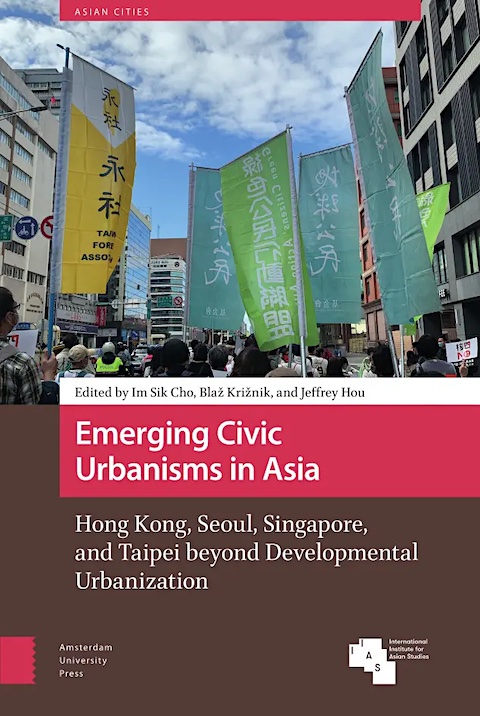With Kim Kon and Krystallia Kamvasinou
Land Use Policy, 105
Elsevier | Amsterdam | 2021 | ISSN 0264-8377
Cities across East Asia once experienced rapid economic growth and urban development under a strong interventionist state. The recent economic slowdown and political changes have pressured them to find alternatives to the previous state-led or market-driven urban development. New forms of participatory governance have been devised to mobilise citizen participation in decision-making. Citizen participation, however, is not simply about direct interactions between the state and citizens. It is also guided and facilitated by intermediary organisations that are state- or self-funded bodies working between the state and citizens. Seoul in South Korea is a case in point. Over the past decade, Seoul Metropolitan Government has institutionalised intermediary organisations to expand citizen participation in diverse areas of urban life. In urban development, a more inclusive approach has been put forward through new partnerships between government, intermediary organisations, and citizens. In this article, a case study of such partnership is critically examined.
Urban regeneration in the Changsin-Sungin Area shows two meaningful changes in the governance of the intermediary organisation. The first change occurred when the intermediary organisation recruited residents as staff members and helped them to create a new local cooperative. The second change happened when the local cooperative took over the role of the intermediary organisation. Analysis of these changes revealed that intermediaries have a contradictory role in urban regeneration. On the one hand, the intermediary intervention has expanded citizen participation and improved consistently the engagement of the community of practice. On the other hand, intermediary intervention has served to instrumentalise citizen participation and constrain the growth of an autonomous community of practice while helping the state to retain control over urban regeneration. In this sense, the intermediary-led participation contains seeds of yet-to-be realised potential, albeit with the current flaws, for more inclusive and sustainable urban regeneration, which this study recognises as an integral part of emerging post-developmental urbanisation in South Korea.
Source: doi.org/10.1016/j.landusepol.2021.105433.

 In parts of Asia, citizens are increasingly involved in shaping their neighbourhoods and cities, representing a significant departure from earlier state-led or market-driven urban development. These emerging civic urbanisms are a result of an evolving relationship between the state and civil society. The contributions in this volume provide critical insights into how the changing state–civil society relationship affects the recent surge of civic urbanism in Hong Kong, Seoul, Singapore, and Taipei, and the authors present eighteen cases of grassroots activism and resistance, collaboration and placemaking, neighbourhood community building, and self-organization and commoning in these cities. Exploring how citizen participation and state–civil society partnerships contribute to more resilient and participatory neighbourhoods and cities, the authors use the concept of civic urbanisms not only as a conceptual framework to understand the ongoing social and urban change but as an aspirational model of urban governance for cities in Asia and beyond.
In parts of Asia, citizens are increasingly involved in shaping their neighbourhoods and cities, representing a significant departure from earlier state-led or market-driven urban development. These emerging civic urbanisms are a result of an evolving relationship between the state and civil society. The contributions in this volume provide critical insights into how the changing state–civil society relationship affects the recent surge of civic urbanism in Hong Kong, Seoul, Singapore, and Taipei, and the authors present eighteen cases of grassroots activism and resistance, collaboration and placemaking, neighbourhood community building, and self-organization and commoning in these cities. Exploring how citizen participation and state–civil society partnerships contribute to more resilient and participatory neighbourhoods and cities, the authors use the concept of civic urbanisms not only as a conceptual framework to understand the ongoing social and urban change but as an aspirational model of urban governance for cities in Asia and beyond.